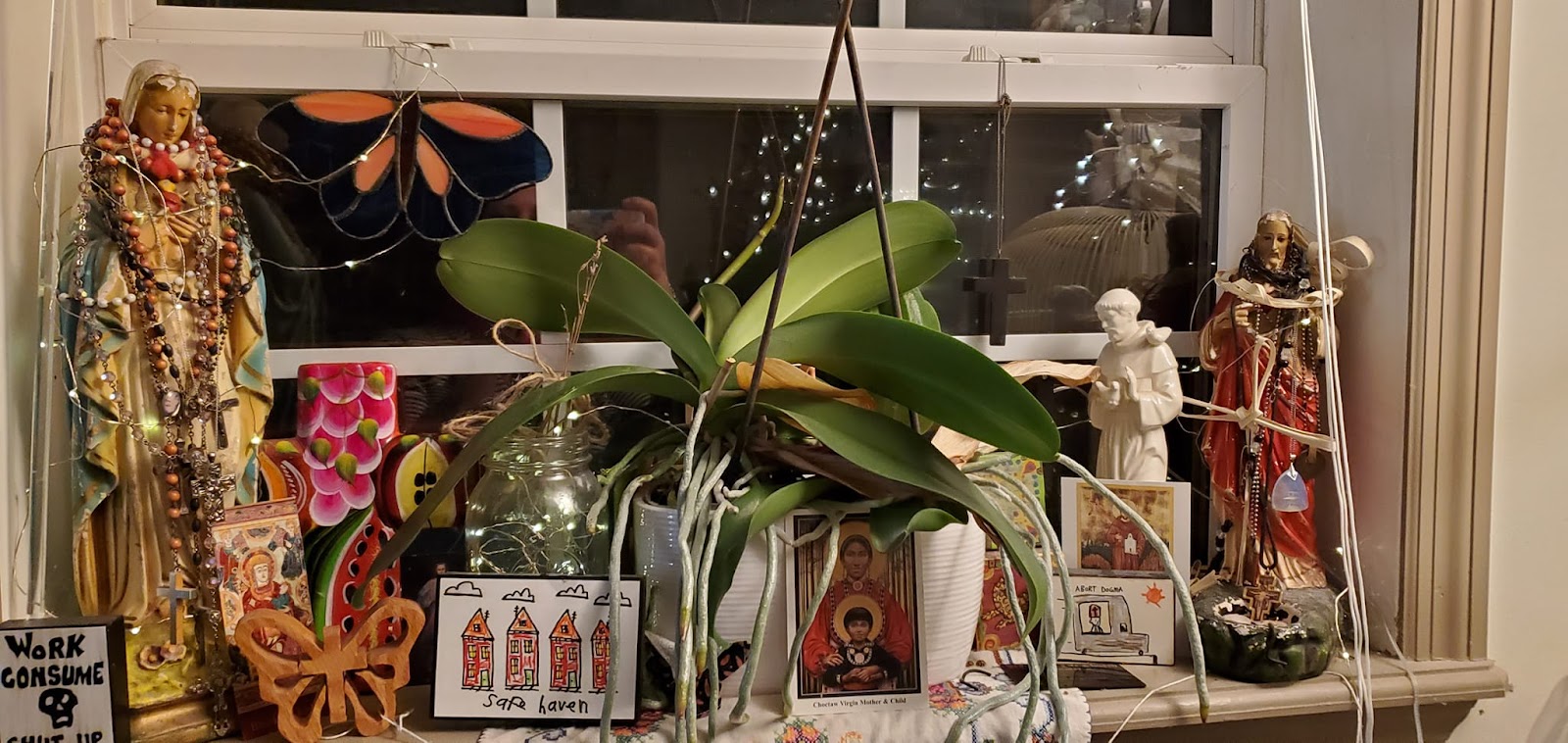Final Reflections - Who are my people? - Worshipful Life Class
Who are my people? What do they need? What do they need from a worship gathering? What do they desire?
My people - I would like to think that all people are my people, however if I am thinking about a particular group of people to whom I feel called and a duty to minister to and on behalf of, it would be people with disabilities, both visible and invisible. I think that despite great strides being made in recent history, that they still need some basic rights and basic access to the world in ways that able bodied people simply take for granted. The church in particular has been remiss in its treatment and inclusion of disabled people. Churches are still exempt from ADA in most cases, and always want to say “we can’t afford to make accommodations”. But how can they NOT afford to accommodate God’s children? I have a sticker on my car that says “Disabled Rights are NOT Charity”. What do they need from worship? Well, they need inclusion, they need to be leaders, they need to be given a voice - even if that voice trembles or it takes them a while to get their speech out. They need access to all the areas of the church that able bodied people have access to, whatever that may be. That would be true disability justice, and that is what they desire. Not to mention less ableism in preaching.
What are my most important principles for planning a worship gathering that services a deeper soul purpose for others?
Apart from the theological and liturgical aspects of worship, I think that one of the most important aspects of worship planning that gets neglected is accessibility. Do you have closed captions on Zoom? Do you have a sign language interpreter in person/on zoom? Do you have large print worship books, bulletins, announcement flyers? Where are your wheelchair accessible seats located? Are they all the way at the back where the person who is sitting down in a wheelchair will see nothing but the backsides of people? Are your clergy properly mic’d and are there speakers around the sanctuary so that everyone can hear? Are your bible studies and other types of child and adult education programs inclusive? And beyond access - does your liturgy honor and respect those with disabilities? How often do you tell people to stand or kneel, does the rest of the congregation understand when someone is unable to do this?(I have severe arthritis in both my knees, and they dislocate easily - I do not kneel in church and sometimes don’t stand - I had a fellow parishioner at one church I attended be quite nasty with me and tell me that I should “trying getting on your knees once in a while”. Sheesh!
Describe one example of how I might implement my worship principle for a gathering of “my people”.
I think that a good example of how I might implement this worship principle would be to have a sign language interpreter as a regular part of my worship team. And not just have an interpreter, but also include sign language as a regular part of the worship service, perhaps using opportunities such as the passing of the peace to teach the able bodied/hearing folks how to pass the peace to their deaf friends and family!

Comments
Post a Comment